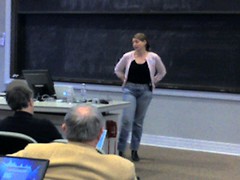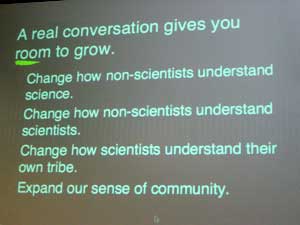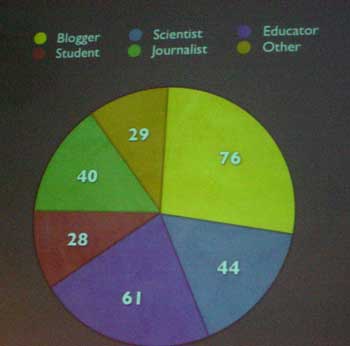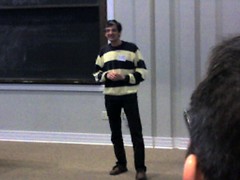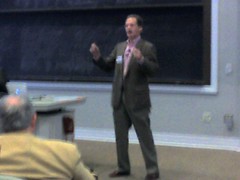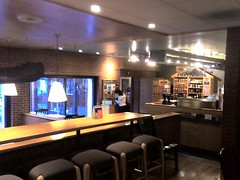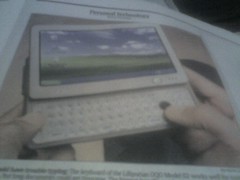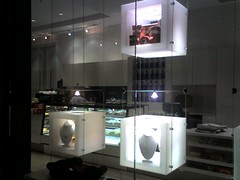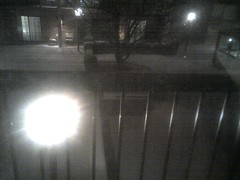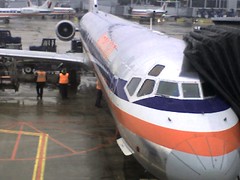[moblogged]
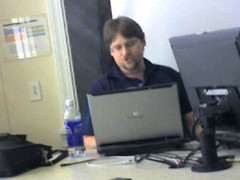 People are wondering in to the Open Source session, presented by Drexel educator, Jean-Claude Bradley, whom I met at NECC in Philadelphia a few years ago, and again, here in Chapel Hill, at the PodcasterCon conference. I’ve been lucky enough to site next to a middle school science teacher, who is interested in using blogs in her science classes.
People are wondering in to the Open Source session, presented by Drexel educator, Jean-Claude Bradley, whom I met at NECC in Philadelphia a few years ago, and again, here in Chapel Hill, at the PodcasterCon conference. I’ve been lucky enough to site next to a middle school science teacher, who is interested in using blogs in her science classes.
The session has started, and Bradley is talking about Open Source Science. He prefers the term Open Notebook Science. Science is evolving from a state were humans are experimenting, to humans doing experiments and using technology is doing part of it, on to where humans are merely asking the questions, and the technology processes the data to answer them. Well, it is certainly not that simple, but this move will usher in a time of very rapid change.
As a Human!
From a teacher perspective, they tried using a blog as a notebook. There were problems, but it provided a useful way for assessment. They discovered that a wiki was a better way to have a social notebook. He is explaining why the wiki worked out better. One thing I gather is that wikis enable the students and teachers to create more complex publishing environments, where blogs are much more chronological. (He’s using WikiSpaces)
| Aside: InChi is a way of describing a molecule without the typical notations. Google does an excellent job of indexing molecules by InChi. I’m not sure what that means, but it sounds very useful. |
They are also starting to do collaborations with other teachers. They have an English teachers who are using what his grad students are doing from a humanities point of view. I’d love to learn exactly how that works. Jean-Claude continues to use a blog to tie things together. It’s sort of a reporting tool — press releases of their project, so to speak!
He’s now showing us some blogs that report experiments, whether they were successful, and why they think the were or were not successful.
One of the concerns being expressed by the audience now is a fear that putting their data and work out on an open social environment invites others to take their ideas and scoop them in the journals. Someone with a Brit accent asks, “What are our opinions of those scientists.” The response to this idea that peer pressure will solve this problem, but he’s making a good case, that the morays of the science community will protect their desire to open up their work and collaborate.

